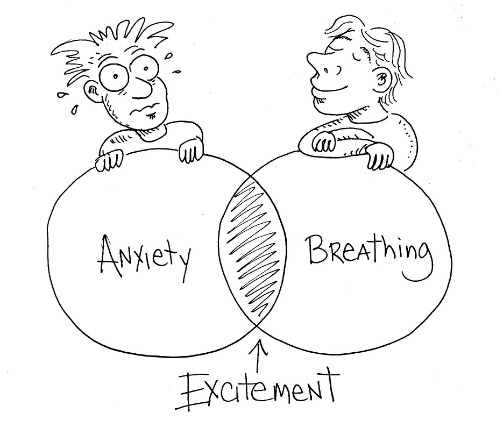Gestalt therapy
Gestalt therapy is a type of therapy that focuses on integrating thoughts, feelings, and behaviors in a holistic manner. The approach was developed by German-American psychologist Fritz Perls in the 1940s and 1950s. This form of psychotherapy has evolved over the years.
Gestalt psychotherapy emerged from the work of Gestalt psychologists, who studied how people experience and interact with the world around them. Fritz Perls took the basic Gestalt principles of perception and applied them to psychotherapy. The basic principle of Gestalt psychotherapy is to learn to be aware of the present moment and take responsibility for one’s thoughts, feelings, and behaviors. This allows the individual to gain a better understanding of their thoughts, feelings, and behaviors and to better process and resolve any underlying issues.
Modern forms of Gestalt therapy have been adapted to be more effective in treating a variety of problems. For example, some forms of Gestalt therapy were developed to focus on helping individuals dealing with addiction, trauma, or post-traumatic stress disorder. In addition, there are forms of Gestalt psychotherapy that are used in working with couples and families.
Gestalt psychotherapy has been refined and developed over the years by many authors, including Paul Goodman, Isadora Fromm, and Erving and Miriam Polster. All of these authors have contributed to the development of the Gestalt psychotherapy model and made it a more effective and useful tool for psychotherapists.
Overall, Gestalt psychotherapy has evolved and developed over the years, becoming a more effective and useful tool for psychotherapists to use with individuals, couples, and families. By providing clients with the opportunity to be more aware of their thoughts, feelings, and behaviors, Gestalt psychotherapy can help them gain greater insight and understanding of the underlying issues they are facing.
Gestalt therapy is a type of psychotherapy that focuses on helping individuals become aware of their emotions and behaviors, understand how they interact with each other, and how they can adapt to achieve better results. It is based on the belief that individuals are more than the sum of their parts and that when individuals become aware of their feelings, thoughts, and behaviors, they can achieve greater self-awareness.
The goal of Gestalt therapy is to help individuals accept themselves as they are and feel more comfortable in their own skin. It also encourages self-exploration and provides insight into one’s thought processes and behaviors.
Imitation of others
Benefits of Gestalt therapy include improved self-esteem and self-expression, increased ability to manage emotions, improved communication skills, and improved problem-solving skills. It also helps individuals understand how their past experiences and relationships have contributed to their current lives and encourages them to take responsibility for their actions and decisions.
Techniques used in Gestalt therapy include role-playing, expressing feelings, using dialogue, and exploring physical sensations. Concentration and mindfulness exercises can also be used to help individuals become more aware of their own body language, facial expressions, and breathing. Other techniques include reframing and re-experiencing to help individuals examine their beliefs and explore new perspectives.
Gestalt therapy is a type of psychological therapy that focuses on the “here and now” rather than the past. It is a form of psychotherapy that helps individuals become more aware of themselves and their environment, enabling them to develop the ability to make decisions and live more authentically.
Gestalt therapy is based on the idea that the individual should be viewed as a whole rather than as a collection of parts. This means that a person’s thoughts, feelings, and behaviors should be viewed as an integrated system. Gestalt therapy emphasizes the individual’s experience in the present moment and encourages self-exploration.
Despite being a relatively new form of therapy, Gestalt therapy has been found to be particularly effective in helping individuals cope with depression, anxiety, and other psychological problems. It can also help individuals develop better interpersonal relationships and gain greater self-awareness.
Some of the practical aspects of Gestalt therapy include the following:
Self-awareness: Gestalt therapy helps individuals become more aware of the thoughts, feelings, and behaviors that make up their experience in the present moment.
Focus on the “here and now”: Gestalt therapy emphasizes the importance of living in the present and viewing experiences in the context of the present moment.
Exploration of Feelings: Gestalt therapy encourages individuals to explore their feelings, including those that may be uncomfortable, and to learn how to express them.
Dialogue techniques: Gestalt therapy uses dialogue and experiential techniques to help individuals explore the meanings of their experiences.
Respect for individual experiences: Gestalt therapy recognizes the uniqueness of each individual and respects their subjective experience.
Gestalt therapy has been shown to be useful in many real-life situations. For example, it can be beneficial for individuals struggling with anxiety and depression, as it can help them better understand their feelings, thoughts and behavior patterns. It can also help people who have difficulty developing meaningful relationships, as it can provide insight into how they interact with others. Finally, Gestalt therapy can be beneficial for those dealing with trauma, as it can help them process their emotions in a safe and supportive environment.

Keywords: gestalt, gestalt therapy, gestalt psychotherapy, gestalt therapist, Licensed therapist near me in Manhattan NYC, Affordable therapy services in New York State, Holistic psychotherapy sessions in NYC, Somatic Experiencing therapy for trauma recovery in New York City, NARM therapy in Brooklyn, Licensed couples therapy in Manhattan, Gestalt therapy near me in NYC, Marriage counseling in Queens NYC, Therapy for anxiety treatment in NYC, Experienced psychotherapist in New York, Licensed psychotherapist near me in NYC, Somatic Experiencing therapy sessions in New York, Trauma therapy and counseling in Manhattan, Gestalt therapy sessions in New York City, Therapy sessions for emotional regulation in New York, Trauma therapy near me in Brooklyn New York, Licensed mental health therapist in Manhattan NYC, Depression therapy in New York, New York City therapist experienced in PTSD treatment
*Photo: GettyImages
*Contact: Make an appointment
*For companies: Creative manager
How to comfort the inner child








